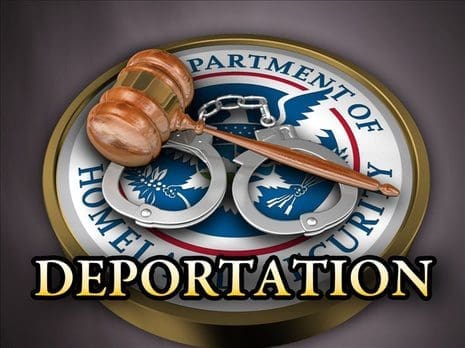Ghana’s parliamentary opposition has demanded immediate suspension of a controversial agreement with the United States to accept West African deportees, arguing the arrangement violates constitutional procedures and threatens national sovereignty.
The Minority Caucus on the Foreign Affairs Committee issued a stern rebuke Friday following President John Mahama’s announcement that Ghana had accepted 14 deportees from the United States as part of a broader regional immigration arrangement announced Wednesday during his presidential media encounter.
Samuel Jinapor, ranking member on the Foreign Affairs Committee, accused the government of breaching Article 75 of Ghana’s Constitution, which mandates parliamentary ratification of international treaties and agreements before implementation. The opposition argues this fundamental procedural step was bypassed entirely.
The minority cited Supreme Court precedents from Banful v Attorney General and Brogya Gyamfi v Attorney General, referencing the earlier constitutional ruling against the Mahama administration’s decision to admit two Yemeni terror suspects from Guantanamo Bay without parliamentary approval.
The constitutional challenge centers on Ghana’s agreement to serve as a transit hub for West African nationals deported from the United States, with President Mahama explaining that Ghana had accepted the arrangement based on existing visa-free travel protocols within the West African region.
Ghana becomes the fifth African nation to accept US deportees under Washington’s expanding immigration enforcement regime, raising questions about the broader implications for regional migration dynamics and sovereignty concerns across the continent.
The opposition’s constitutional objections extend beyond procedural concerns to fundamental questions about national sovereignty and foreign policy autonomy. They argue that accepting forced deportations orchestrated by non-ECOWAS states contradicts the spirit of regional integration protocols designed for voluntary movement.
The minority specifically challenged the government’s interpretation of ECOWAS free movement protocols, arguing these arrangements concern voluntary travel rather than forced deportations mandated by external powers. This distinction carries significant implications for Ghana’s role in regional integration efforts.
Beyond constitutional questions, the opposition raised security concerns about the arrangement’s broader implications. They demanded full disclosure of safeguards, processing procedures, and measures taken to protect Ghana’s national security interests in accepting deportees whose backgrounds may not have been fully vetted by Ghanaian authorities.
The timing of the controversy adds political dimensions to constitutional concerns. The opposition’s challenge comes as Ghana navigates complex relationships with both the United States and regional partners, requiring careful balance between international cooperation and domestic constitutional requirements.
Legal activist Oliver Barker-Vormawor has also raised constitutional compliance concerns, suggesting potential court challenges to the deportation agreement based on Supreme Court precedents requiring parliamentary approval for such arrangements.
The debate reflects broader tensions about Ghana’s international positioning as the country seeks to maintain positive relationships with major powers while preserving constitutional governance and regional integration principles. The opposition’s demands for transparency include disclosure of when the agreement was negotiated and whether any consultation occurred with parliamentary leadership.
President Mahama’s administration faces mounting pressure to provide detailed explanations about the agreement’s terms, duration, and scope. The opposition specifically seeks clarification about whether the arrangement extends beyond the initial 14 deportees and what ongoing commitments Ghana may have assumed.
The constitutional crisis extends beyond immediate political disagreements to fundamental questions about executive power in foreign policy matters. The opposition’s challenge tests the boundaries between presidential authority in international relations and parliamentary oversight of treaty-making powers.
The controversy also highlights Ghana’s evolving role in regional migration dynamics as African nations increasingly face pressure to accept deportees from Western countries implementing stricter immigration enforcement. Ghana’s decision establishes precedents that could influence similar arrangements across West Africa.
As the constitutional challenge unfolds, the opposition’s demands for immediate suspension create tensions between legal procedural requirements and ongoing international commitments already made to the United States. The resolution of this dispute will likely influence future executive-legislative relations in foreign policy matters.
The broader implications extend to Ghana’s reputation for constitutional governance and rule of law, principles that have underpinned the country’s democratic credentials and international standing since the return to multiparty democracy.
Source: newsghana.com.gh











